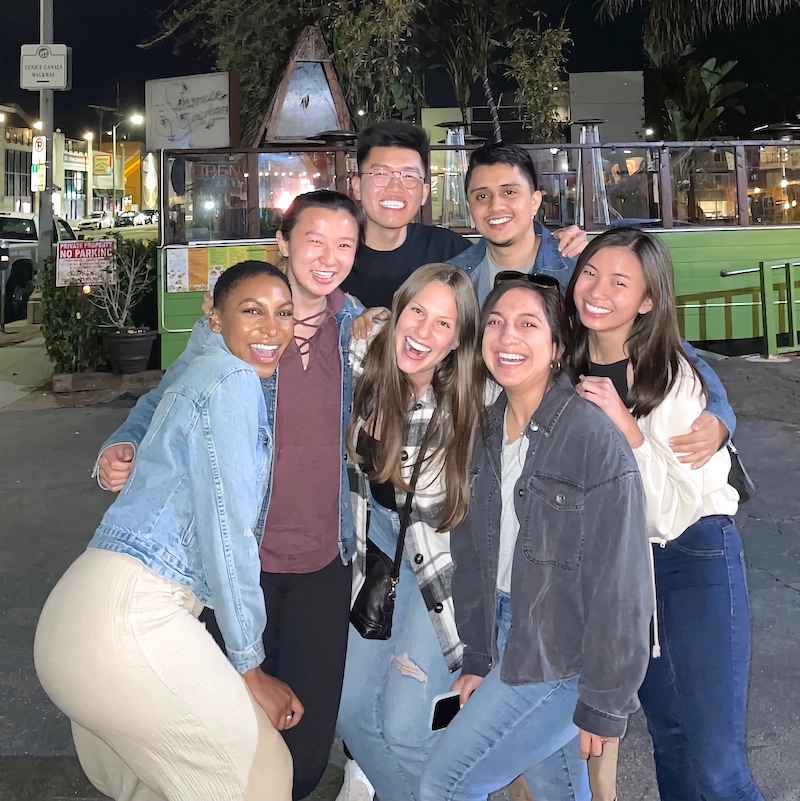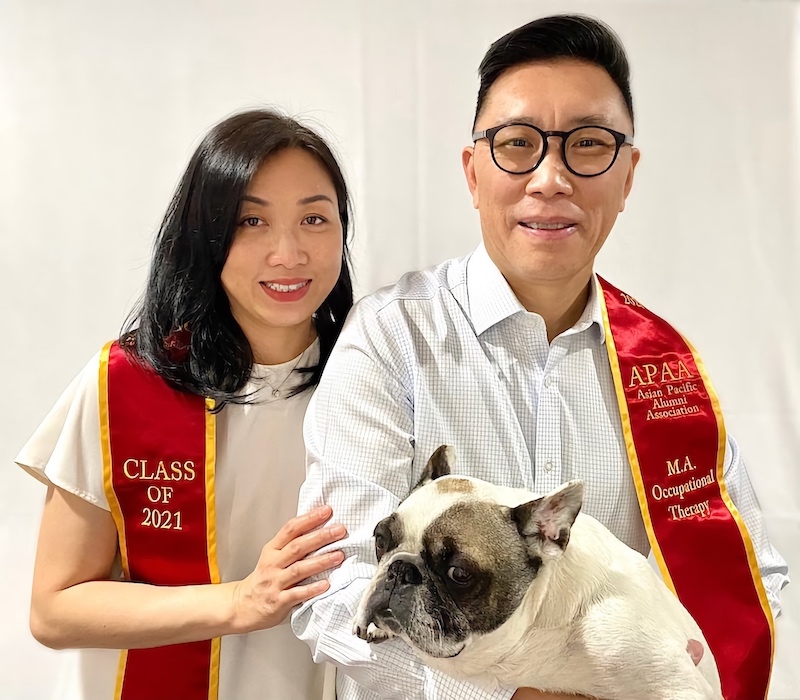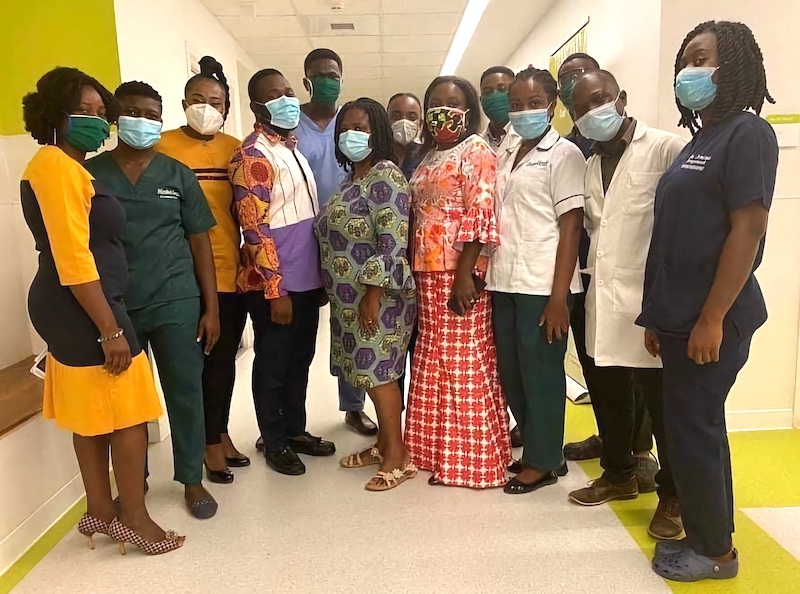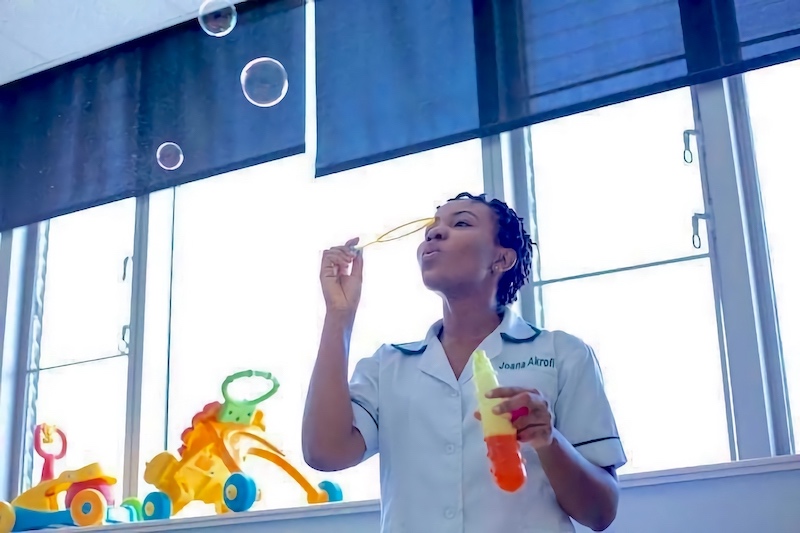Student Blog
Diversity
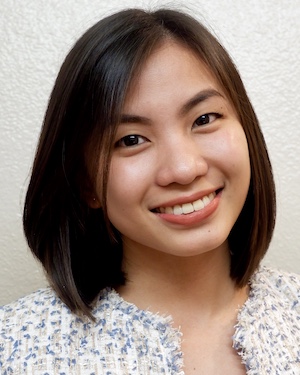
I Don’t Say This Every Day But . . . ⟩
May 7, 2021, by Yna
Beginnings and Endings Classes Diversity International
We spent how many hours on Zoom every day for 9 months, yet it wasn’t until the last day of classes when I realized just how much I’m going to miss my MA1 classmates. What we thought was only going to be a temporary virtual learning setup has been stretched to a whole academic year. Even though this was surely nothing close to how we imagined going through graduate school, still, for some reason, it went our way because we are finishing in A WEEK! It just weirdly feels a little short. I’m still at a loss for words, just like how I was when I was trying to write my very first blog. What words could possibly capture how great of an adventure it has been?
A couple of months ago we were all just a bunch of strangers trying to find a place in this new world. It’s one thing to find acceptance; but feeling a sense of belongingness and a feeling of home is a whole different story — one that I’ve found in this wonderful group of people. I have hoped for companionship but what I’ve found is so much more: teamwork, diversity, and nothing but love and support for one another. I’m really so proud of us and all I can think of is — what a time to be in to witness these individuals succeed through challenges! We really embodied that “Fight On!” Trojan spirit, didn’t we? Truly, my experience thus far has been nothing short of amazing because of all the people on the other end of my computer screen. I’m sure you know, but it bears repeating.
Here are some of the unforgettable memories we had in the past year 😊
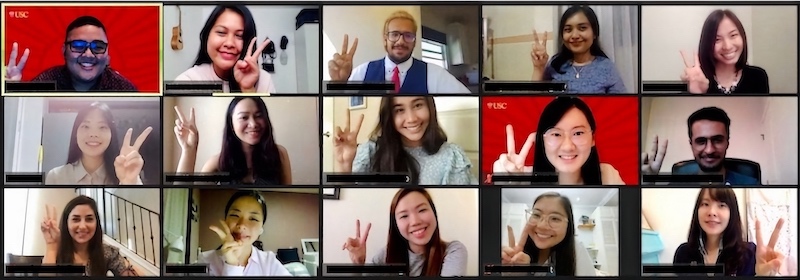
MA1 Virtual White Coat Ceremony
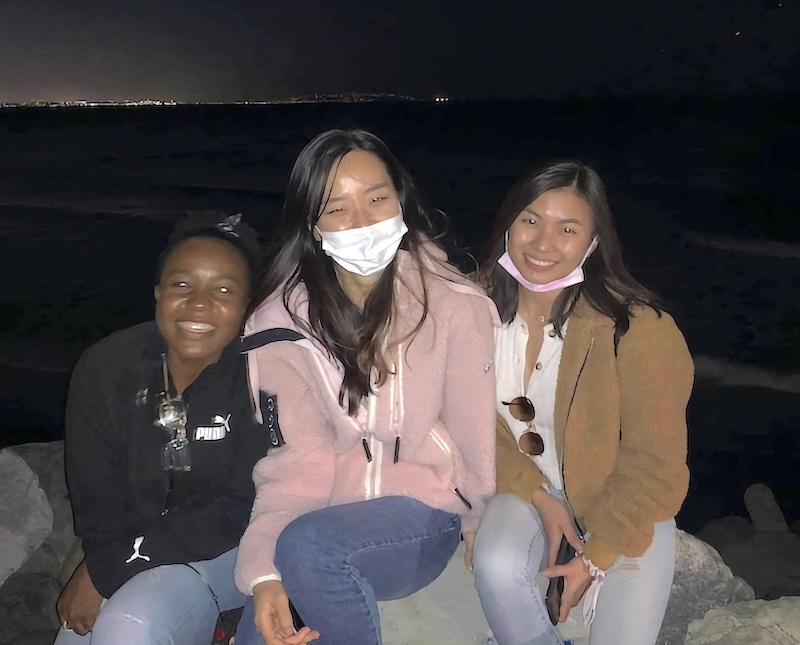
MA1s at the beach
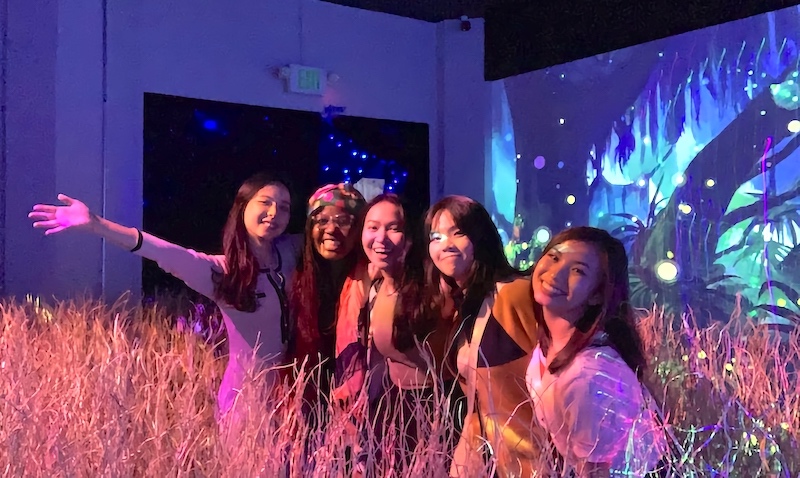
MA1s at the museum
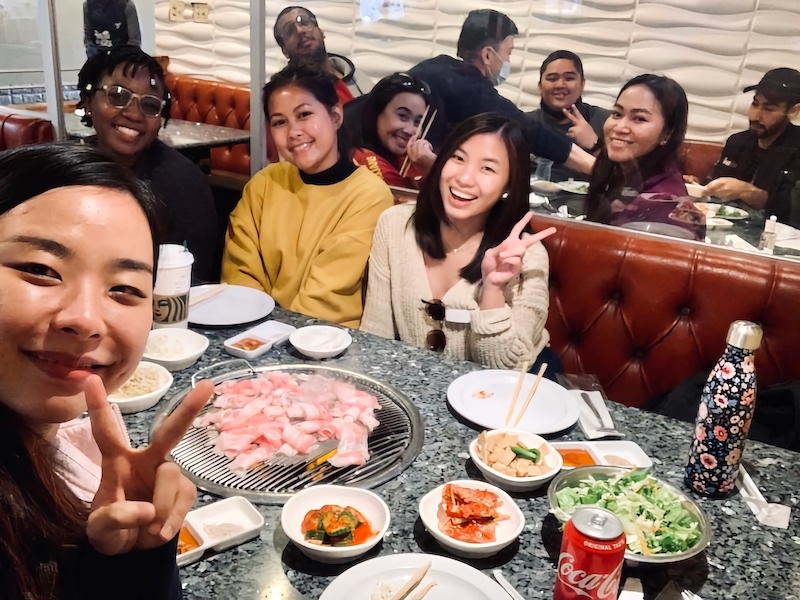
MA1s having Korean BBQ . . . Jisu was not impressed with the food :( LOL 😆
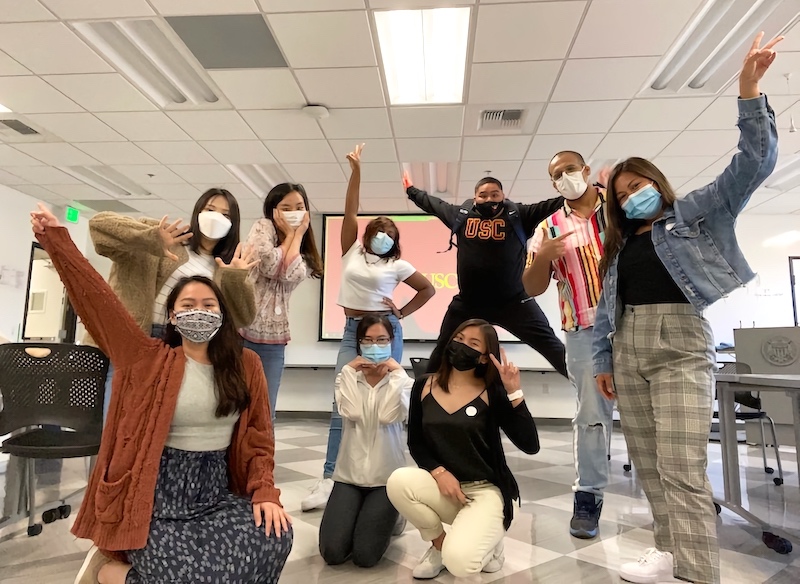
Just happy to have an in-person class!
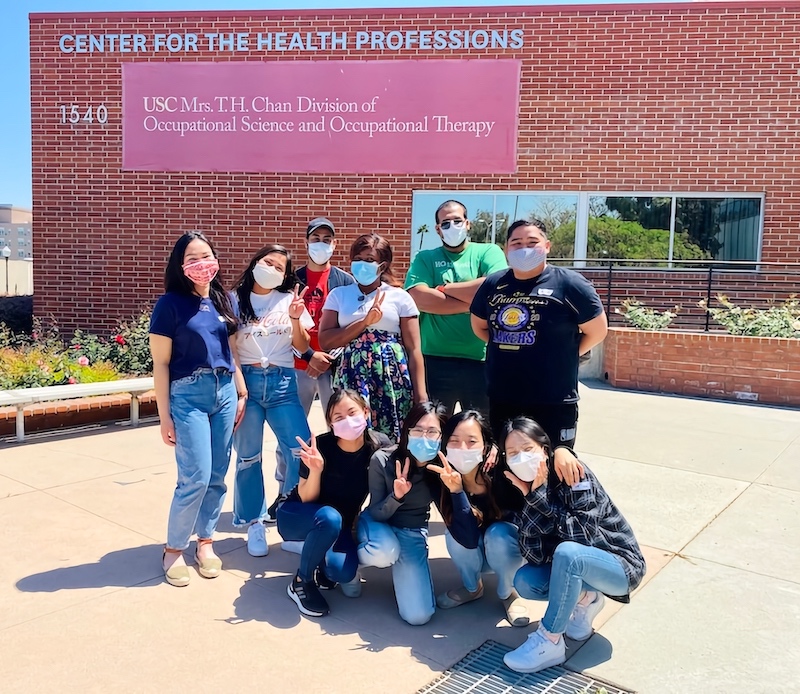
Proudly posing in front of the Chan Division
Of course, my USC Chan experience has been greatly enriched by working with the amazing team of student ambassadors and our supervisor, Kim Kho, who constantly encouraged me to do my best work and really contributed a lot to my growth. I learned A LOT from each and every one of you and I’m so thankful to have been a part of this team!! I also want to thank my dearest family and friends without whom I wouldn’t be where I am today. And to all the readers, it has been a pleasure to be able to share this crazy adventure with you all through my blogs and videos.
Now, I shall go back to studying for my comprehensive exams. After graduation, I will be working with Dr. Daniel Park for the Summer OT Immersion program that is happening on July, so I hope to see some of you there! What’s next after that — I don’t quite know yet; but as always, we Fight On Forever!
All the love and well wishes,
Yna <3
⋯
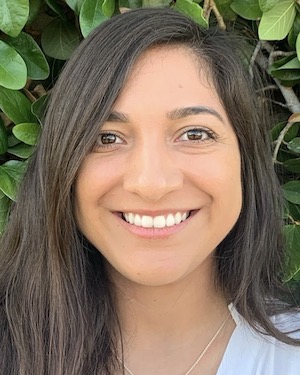
Closing Time ⟩
May 4, 2021, by Liz
Beginnings and Endings Diversity What are OS/OT?
I knew this time was coming — final blog post and graduation! I cannot believe next week is graduation. These two years flew by so fast and I’ve seen myself grow so much. I’ve met lifelong friends, who can’t get rid of me now because they know far too much about me at this point. I am so excited to see where life takes us and all the amazing things we will do as OTs soon.
I never imagined getting a Master’s degree. If you took a poll at the schools I attended from elementary school to high school and asked “Which student in this classroom can you see in USC’s OT program one day?” it certainly wouldn’t have been me. I am grateful for all of my mentors from elementary school until now who encouraged me and believed in me when I didn’t. I am also thankful for my family, my amazing partner, and friends who’ve been there for me throughout this journey! I couldn’t have done it without you all.
Pictures speak volumes, so here are some of my favorites captured these past two years that make me happy. Prepare for photo dump!
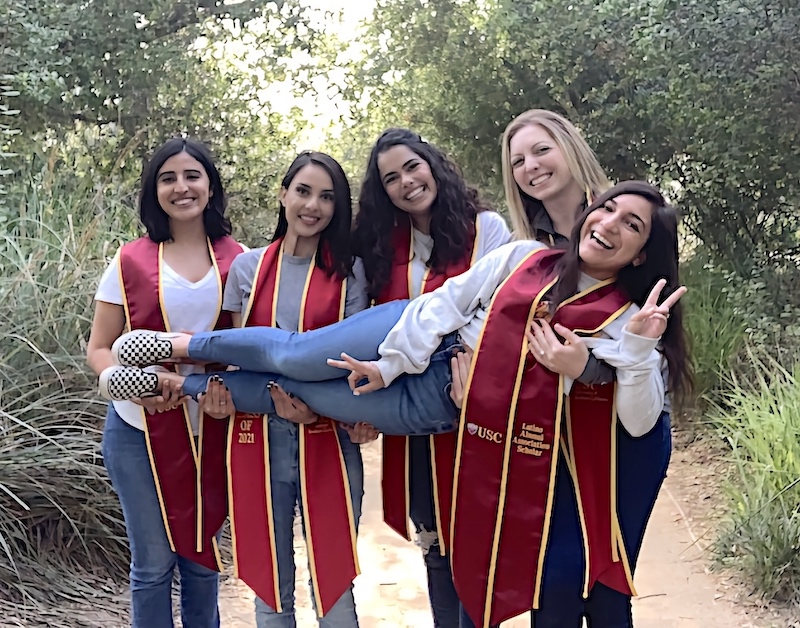
Pictured: the future’s greatest OTs and my best friends! From left to right — Stephanie Gomez-Rubalcava, Raquel Rios, Renee Reinberg, and Lorelei Ritter. We did it! We went from crying in the hot tub of our apartment complex after only knowing each other for one week our first summer to crying tears of laughter. Go us! We’ve shared so many beautiful memories together and I am beyond grateful for each and every one of you. Cheers to us!
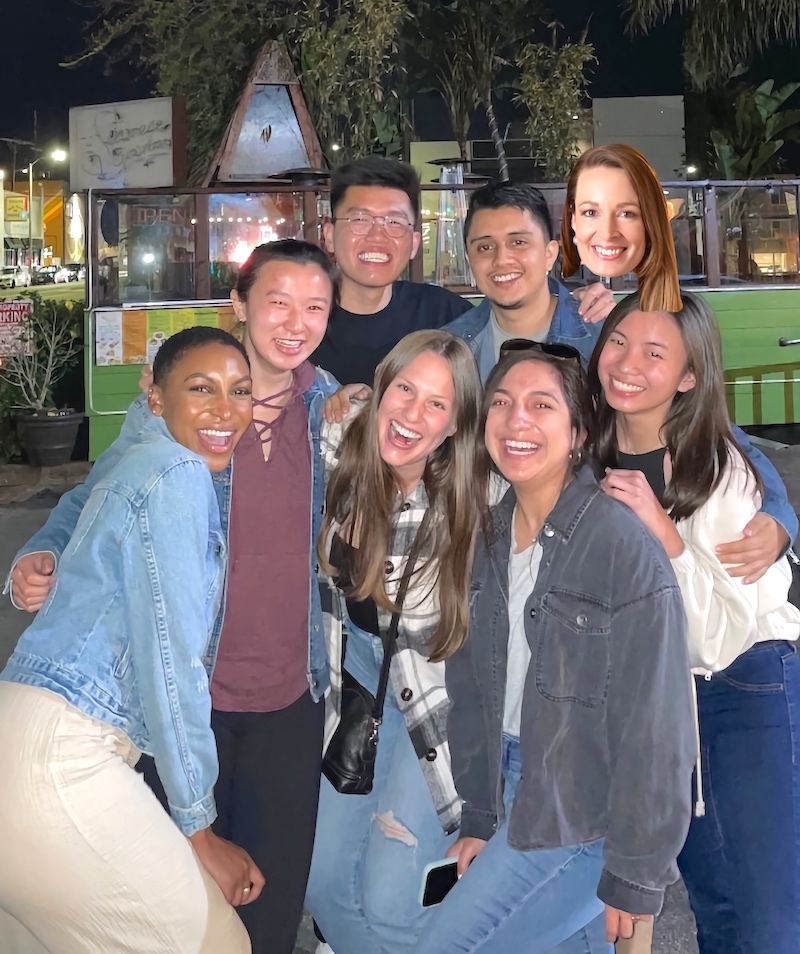
The greatest team in the world! Bethany, Calvin, Savi, Daniel, Yna, Lamoni — you are all such kind souls and I really wish we could just work together forever. Special thanks to the amazing Kim Kho — Kim, you are a gem. Ya’ll need to stand behind me on this one. Kim should honestly host a TED talk. You’ve pushed me to be myself, stay creative, and have always made our mental health a priority. A million times thank you! I will miss you all so much.

A FAQ I received this past year was “will I have time for a personal life?”. My answer is always, yes! Sometimes it’ll be a little challenging, but it’s very doable. Personal life consists of so many things — for me, it was making time to spend with my favorite person in the world. A very special shout out to a very special, patient, and goofball of a man my boyfriend, Josh. Thank you for being so supportive and working with my wild schedule!
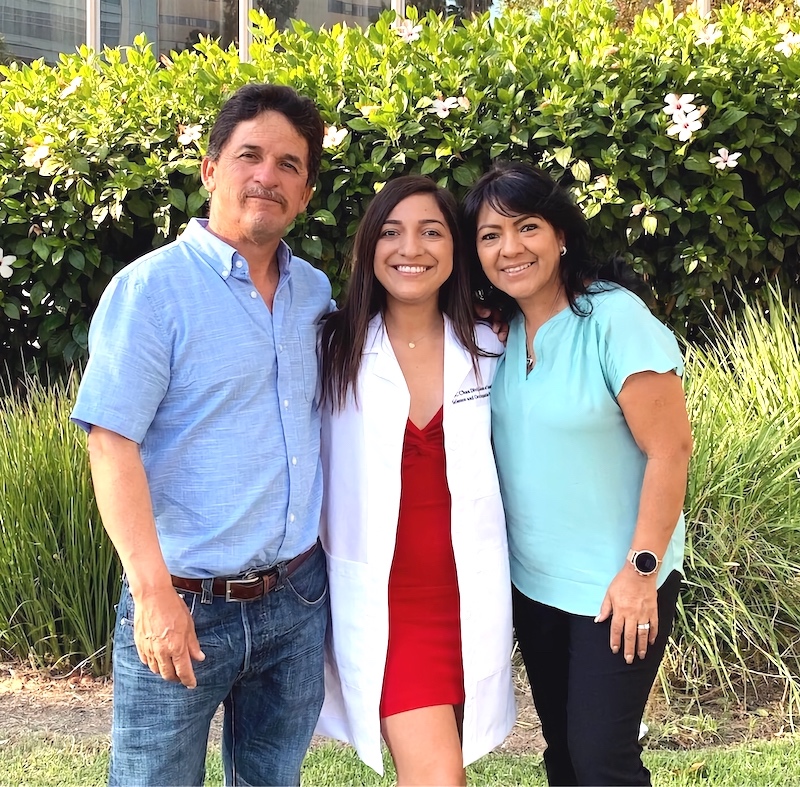
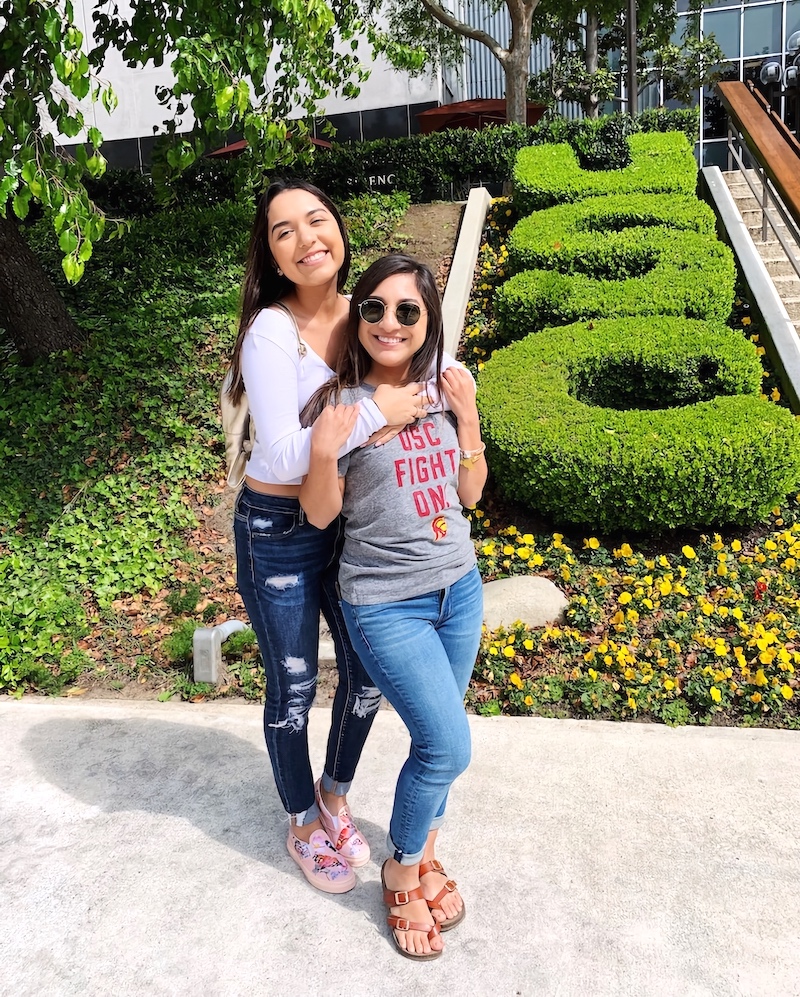
Pictured: my motivation for everything that I do! My mom, dad, and little sister. Which brings me to the point: anyone else agree it should be illegal for younger siblings to be taller? Anyway, thank you for shaping me into the woman that I am today. You came to this country with nothing, only to give me everything. You painted my wings, we did it.
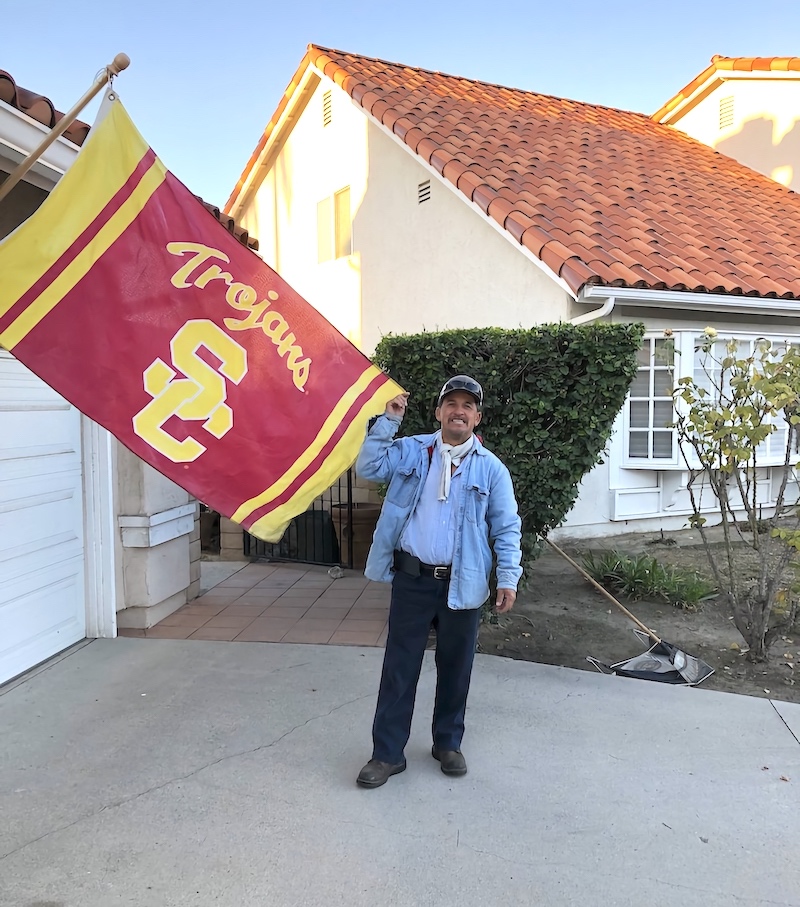
Bonus picture of my dad. He sent me this picture during my first week in the program — proudly posing at work with his boss’s USC flag. This picture keeps me going. You’ll have your own soon, pa!
Now, the terrifying, yet exciting question: What’s next?! After thinking long and hard, I decided not to go through with the OTD. Financially, it is not within my reach at this moment in time. And, I think it’s time I help my family. So, although I REALLY hope to teach some day, now’s not my time. But, I am hopeful that I will find my way back to reach this goal. For now, I am excited to help provide my parents with health insurance and lift some weight off their shoulders.
My fieldwork educator from the Spring mentioned he may have a position available for me after I get my license, so I will be staying in touch with him. As you all know, I had a blast! So, I am looking forward to going back and some day taking in a fieldwork student 😉 I am excited for what’s to come. And lastly, thank you to all the faculty at Chan whose made my experience truly unforgettable. Fight on!
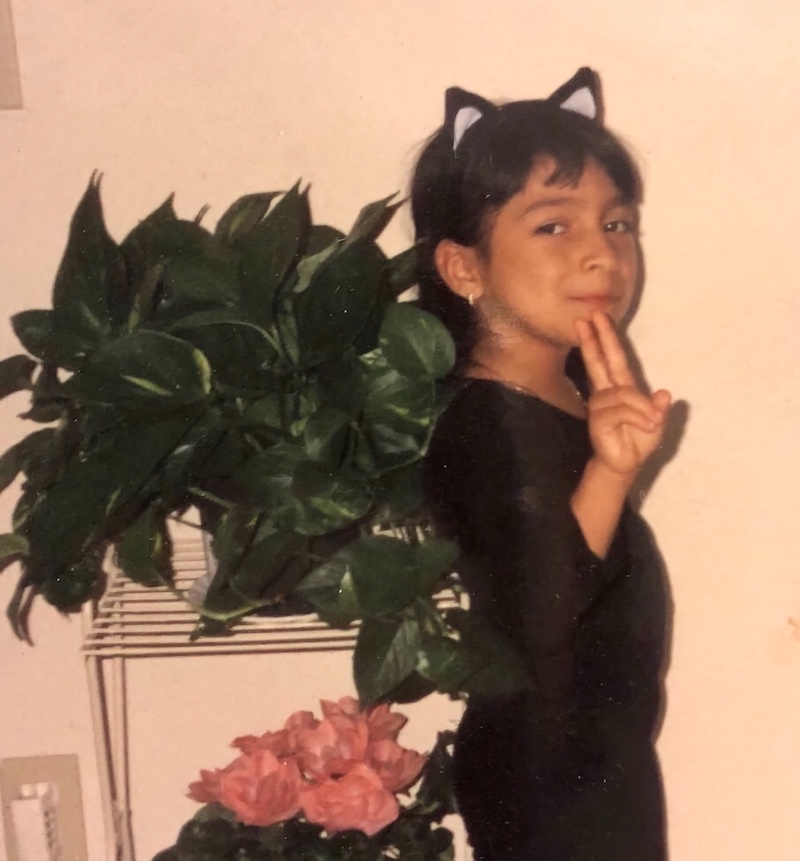
⋯
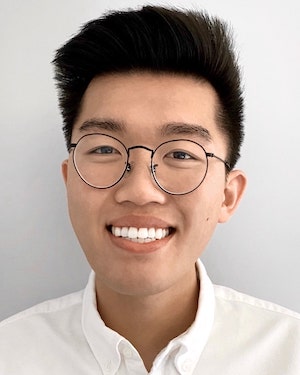
Good Days on My Mind ⟩
May 3, 2021, by Calvin
Beginnings and Endings Diversity What are OS/OT?
Wow, time sure does fly by, huh? I shouldn’t be surprised at this point, but graduation happening next week still seems so crazy to me! Almost two years have gone by since I officially started this program and so much has happened since then. I’ve made amazing, life-long friends, overcome so many obstacles to get here, developed an even stronger love and passion for occupational therapy, and I’m happy! I’m happy with where I am today and I’m happy with the person that I’ve grown to become.
And, of course, I couldn’t have gotten this far without my support system — the people that have truly made my experience here special and made me feel like I belong.
To my friends: You know exactly who you are!!! Thank you for always being there for me and for making graduate school such an unforgettable experience. Thank you for the late-night talks, the vent sessions, the hangouts, the crying and the laughter, and the what-the-heck-am-I-going-to-do-in-the-future panic conversations 😅. Thank you for everything, and I can’t wait to celebrate with you all very very soon 😊!
To my ambassador team: We really put in the WORK this year and I’m so blessed to have been able to collaborate with all of you. I really wish we could’ve been together in person, but I’m grateful that we made it work out and even found time to hang out with each other recently! If it wasn’t for this student ambassador position, I feel like I wouldn’t have had the chance to talk with y’all as often, and for that, I am beyond grateful 😊. AND thank you, Kim Kho! You have always been such a supportive, caring, and understanding supervisor while having to juggle so much on your plate. You’ve really helped make my ambassador experience memorable and it’s been wonderful getting to know you! Also, big thank you to the Admissions Team, Dr. Mike McNulty, Bianca Ojeda and Paul Bailey — what would we do without all of you?!?!
To my mentors: I’m so thankful to all of you — faculty and student mentors alike. Graduate school was a scary thing to jump into, but because of your unwavering support, I was able to navigate it with more ease and develop that sense of confidence and belonging. I also really want to give a huge thank you to Dr. Daniel Park. Danny, you’re just the best! I’ll never forget the day when I first met you and was introduced to your kind and approachable personality. I was just a lost, new student that was interested in participating in Global Initiatives, and you welcomed me with open arms. I always feel like everything is going to be okay when I talk to you, and you’ve absolutely made a positive impact on my experience here. Thanks so much for your guidance, mentorship, and friendship, Danny!
To my family: I don’t think saying “thank you” is ever enough to express my gratitude to you. You’ve worked so hard to get to where you are and help me get to where I am — I’m just forever grateful for everything you’ve done for me. Although I rarely say it, I love you, and even though you still don’t really know what occupational therapy is 😂, you’ve been a huge part of my journey and I could not have done this without you. Thank you and love you!
My time spent in the Master’s program has been incredibly meaningful, and I know that good days will continue to be on the horizon. However, this definitely isn’t goodbye yet haha! I’ll be sticking around for one more year to pursue the policy and administration track of the occupational therapy doctorate, completing my residency with the USC Chan Division China Initiative!
As sad as I am that this is the last time I’ll be writing these blogs, I’m super excited for this opportunity and I can’t wait to see where this journey takes me! Thank you to all of you for reading my blogs and watching my videos. It means so much to me and I hope that we can all cross paths someday. For now, stay well, take good care, and I’m wishing you all the best! Fight On!
⋯
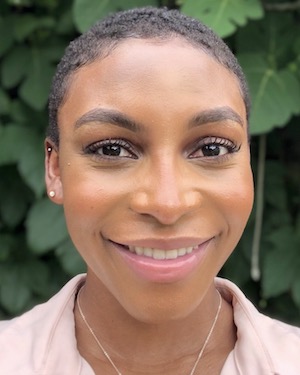
Being Black in OT: The Impact On My Future Black Clients ⟩
April 7, 2021, by Lamoni
Diversity
Two weeks ago, I attended a livestream event by the Summit Performance Indianapolis called “Black Voices in OT.” It consisted of a play that highlighted common experiences of Black occupational therapy students and practitioners. Many of these experiences were negative. It was filled with micro-aggressions, insensitive statements, and harmful actions by peers, professors, and bosses. The structure of the play was interesting because it took place over a zoom call; It was two OT practitioners and one OT student having a casual check-in to release all of their frustrations regarding the racism that they experienced during work and at school. The purpose of the play was to bring attention to the fact that Black OTs have to navigate racism all while trying to balance the demands of being a graduate student, care for clients to their full capacity, maintain relationships with peers and coworkers, and remain in a positive attitude. It requires a lot of energy and it can feel even more depleting when there is not a shoulder to lean on or an ear to listen.
As I watched the play and heard the compilation of several upsetting stories which were extracted from actual surveys taken by Black OTs and OT students, I did find relief in the fact that they had each other. Between their sighs and head shakes were also moments of laughter. It reminded me of my own conversations with my family and Black friends. To be amongst people with a shared identity and shared experiences can be very therapeutic. It can be a source of reassurance and confidence. It can be the difference between getting knocked down and staying down or choosing to stand up again.
USC Chan’s incoming class of 2023 is the most racially diverse class yet. I can only hope that an increase in diversity is true for several other occupational therapy programs across the nation because we need it. I believe more representation in the field would decrease the number of negative experiences highlighted in the play. Besides that, I think being Black in OT comes with many positives for Black clients. Currently, and rightfully, the Black community has a lot of mistrust towards the healthcare system. This is due to a long history of medical abuse, neglect, and exploitation. As more Black people enter healthcare professions, trust can be restored. With trust comes more buy in; clients may be more likely to fully participate during sessions and to listen to the OT’s recommendations. This can translate to greater improvements in their condition, fewer hospital re-admissions, etc.
As a Black OT, you will be a practitioner that your Black clients can relate to. Being of the same culture typically means that there will be several shared experiences, maybe similar upbringings, or interests. This is another way to build rapport and establish a strong, trusting relationship. Additionally, you can be a source of emotional healing. We typically think of healing in terms of health conditions, but we have to remember that occupational therapy is holistic and takes into account emotional health. Racial injustices are constantly taking place around us and this undoubtedly takes a toll on Black clients’ wellbeing. If you are working in an inpatient rehab facility and your Black client does not have friends or family around to talk about what they may have recently watched on the news (for example, Black Lives Matter marches), your presence and the assumption that you understand racial trauma can promote healing. Even without speaking, you may be a source of comfort.
I will be graduating next month and while I am simply excited to soon enter the workforce in this amazing profession, I am equally excited to serve my community. I think about the general mistrust towards the healthcare system and how extra doubt may be present towards a field like OT. Many people do not know what occupational therapy is and what occupational therapists do, thus, mistrust may be amplified. Having someone from your background explain the profession, become your practitioner, and lead your interventions is not only beneficial for Black clients but for the occupational therapy profession overall. Yes, we may experience some negative moments, but I am hopeful that the good will outweigh the bad. I am also hopeful that the number of Black OT students and practitioners will rise and, in return, cause the number of unpleasant moments to fall. Continue to push towards diversOT, it benefits us all and can only make our profession better.
⋯
Transforming Western Perspectives — Continued ⟩
April 2, 2021, by Global Initiatives Team
Diversity International
Joana Nana Serwaa Akrofi, OT
Post-Professional Master’s student, University of Ghana Graduate, Newsletter Editor for the Occupational Therapy Africa Regional Group
By Michelle Plevack
Entry-Level Professional Master’s student
In collaboration with Brittany Inouye
Entry-Level Professional Master’s student, Global Initiatives Student Worker
In February 2021, Global Initiatives had the pleasure of hosting a Global Brown Bag Seminar featuring a variety of international occupational therapy perspectives (Transforming Western Perspectives: Lessons Learned from International OT). We are excited to highlight one of the panelists, our very own Joana Nana Serwaa Akrofi, OT, and her work as an occupational therapist in Ghana.
While Joana is currently residing in Los Angeles for the Chan Division’s Post-Professional Master’s (MA-1) program, she was born in Ghana and has worked there as an OT across a variety of settings. Before becoming an OT, Joana was an advocate for feminism and spirituality, and expresses that she has always felt she was “born to be an activist.” This mindset has translated into a sense of advocacy for occupational therapy in Ghana, where individuals with disabilities are frequently stigmatized. Following schooling, Ghanaians who complete a higher education are required to work in their field for one year in an unpaid government position. With a strong interest in pediatrics and in particular, children with autism, she spent this unpaid year working at a community-based institution where she educated teachers and students about the developmental needs of students with disabilities. This kickstarted her interest in Sensory Integration strategies for this population. While there is presently no Sensory Integration certification in Ghana, Joana hopes to pioneer SI practice using the available resources in her home country.
Although Joana’s academic journey with USC has taken place amidst a global pandemic, her positive outlook highlights the collaborative, inclusive, and diverse nature of the Chan community. She describes how communities such as Global Initiatives “helped us celebrate our roots and makes me proud to be Ghanaian.” She has felt enlightened by her experience at USC in that she had previously believed Westerners to have a negative, single narrative about the people of Ghana. Having now interacted and worked with not only Americans, but a wealth of diverse individuals in the MA-I cohort, Joana has become reassured by the solidarity within her classrooms and the Division as a whole. She described feeling inspired by both her professors and classmates’ experiences, which I in turn relate to, feeling inspired by Joana’s confidence and resolve.
Joana’s voice holds great fortitude and passion while envisioning her hopes for occupational therapy in Africa. She describes the profession as going through a phase, and dreams of establishing occupational therapy in Ghana in a way that is relevant to Ghanaians. In contrast to the United States, in Ghana, interdependence within the local community is valued and ‘needing help’ is less taboo. It is not strange for extended families and friends to want to help nurture each other during times of need. She hopes to integrate these values into her practice as an OT. While Western viewpoints focus on independence in activities of daily living (ADLs), decolonizing that perspective would mean realizing that group facilitation of these same ADLs can actually bring community members together in a healing way.
If she could give one word of advice for anyone interested in working in Africa or abroad in general, it is to “go in trying to learn rather than trying to teach,” which is ironic in that while Joana is here at USC to learn, she has subsequently taught us so much.
Bubble activity used to engage children with Autism Spectrum Disorder (ASD) before beginning sessions
⋯






